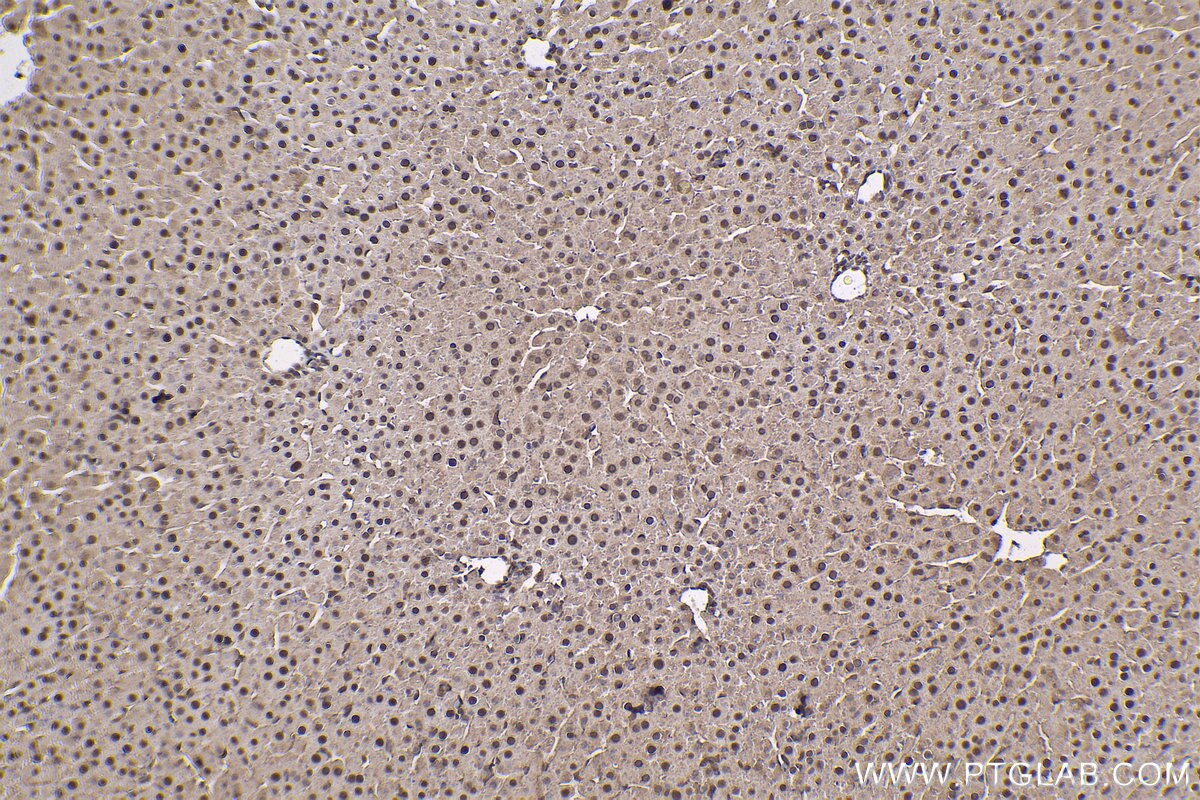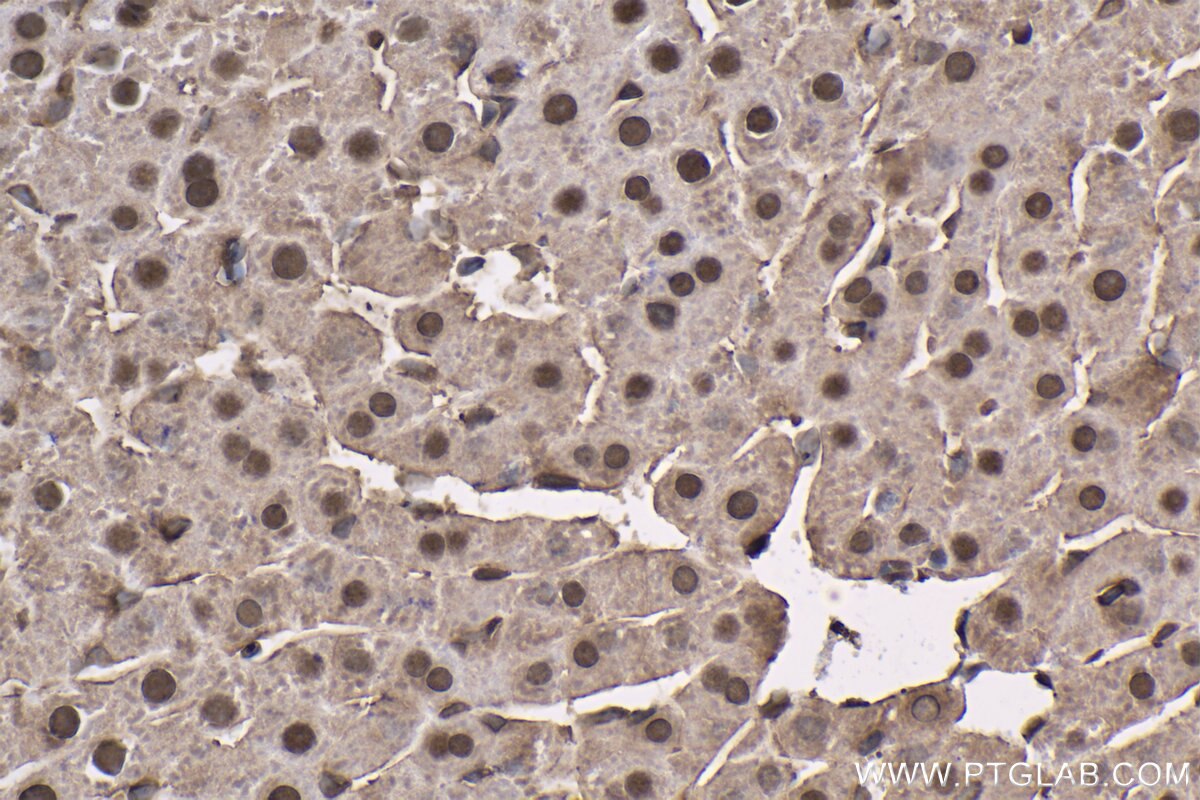Anticorps Monoclonal anti-14-3-3E
14-3-3E Monoclonal Antibody for WB, IHC, ELISA
Hôte / Isotype
Mouse / IgG2b
Réactivité testée
Humain, rat, souris
Applications
WB, IHC, ELISA
Conjugaison
Non conjugué
CloneNo.
3A3A4
N° de cat : 66946-1-PBS
Synonymes
Galerie de données de validation
Informations sur le produit
66946-1-PBS cible 14-3-3E dans les applications de WB, IHC, ELISA et montre une réactivité avec des échantillons Humain, rat, souris
| Réactivité | Humain, rat, souris |
| Hôte / Isotype | Mouse / IgG2b |
| Clonalité | Monoclonal |
| Type | Anticorps |
| Immunogène | 14-3-3E Protéine recombinante Ag25186 |
| Nom complet | tyrosine 3-monooxygenase/tryptophan 5-monooxygenase activation protein, epsilon polypeptide |
| Masse moléculaire calculée | 255 aa, 29 kDa |
| Poids moléculaire observé | 28-32 kDa |
| Numéro d’acquisition GenBank | BC000179 |
| Symbole du gène | 14-3-3E |
| Identification du gène (NCBI) | 7531 |
| Conjugaison | Non conjugué |
| Forme | Liquide |
| Méthode de purification | Purification par protéine A |
| Tampon de stockage | PBS only |
| Conditions de stockage | Store at -80°C. 20ul contiennent 0,1% de BSA. |
Informations générales
14-3-3 epsilon (also known as YWHAE) is a member of 14-3-3 proteins which were the first phosphoserine/phosphothreonine-binding proteins to be discovered. 14-3-3 family members interact with a wide spectrum of proteins and possess diverse functions. Mammals express seven distinct 14-3-3 isoforms (gamma, epsilon, beta, zeta, sigma, theta, tau) that form multiple homo- and hetero- dimmers. 14-3-3 proteins display the highest expression levels in the brain, and have been implicated in several neurodegenerative diseases, including Alzheimer's disease and amyotrophic lateral sclerosis.







